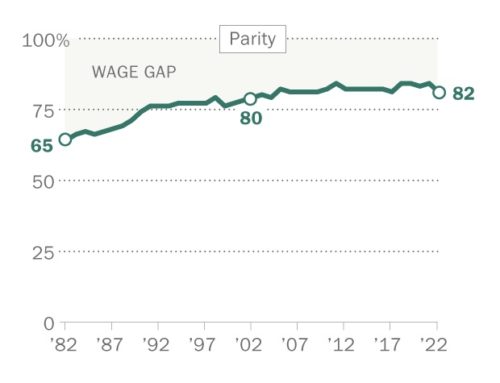On Monday, after a building collapse that killed at least 1,127 workers in what is being called the deadliest accident in the industry’s history, some of Europe’s largest retailers agreed to improve the safety of Bangladesh’s garment factories.
Under the five-year accord, major European companies agreed not to hire manufacturers whose clothing factories failed to meet safety standards, and they committed to pay for repairs and renovations. The accord calls for the appointment of a safety chief to inspect Bangladesh’s 5,000 garment factories and for the establishment of fire-safety training for workers.
Each company’s cost to implement the accord will be based on how much they produce in Bangladesh, up to a maximum for each company of $2.5 million over the five years, according to a draft of the agreement.
The agreement is only the first step in a long process.
Signatories have 45 days to form a governing board and develop a plan for implementation. The board will include three labor representatives, three retailer representatives and a chairman chosen by the U.N. International Labor Organization.
Whether buyers are willing to pay more to upgrade Bangladesh factories remains to be seen. Bangladesh’s main advantage is its low cost: Its minimum wage of $38 per month is less than a fifth of the going rate in China.
Trade groups representing U.S. retailers and clothing manufacturers are meeting to establish their own accord to improve overseas workplace safety.
The collapse has put pressure on Bangladesh Prime Minister Sheikh Hasina’s government to address concerns about working conditions. An adviser to one foreign buyer says that, in Bangladesh now, there are “no rules whatsoever that cannot be bent.” The owner of the building that collapsed had ignored warnings from the Bangladesh government and the Bangladesh Garment Manufacturers and Exporters Association, a lobbyist group.
What was Prime Minister Hasina’s response to the building collapse? Her first comment, to CNN, was, “Accidents happen.”
After worldwide protests soared, her administration said it would: raise the minimum wage in the garment sector; implement measures to facilitate union organization by workers. It also closed 18 garment factories for safety violations and planned broad inspections of other facilities.
Important questions remain:
Can the government put leverage on the Bangladesh’s garment business, which has tremendous clout? The industry’s $20 billion of exports account for 80 percent of the country’s exports, which have doubled since 2011, when the European Union relaxed its trade rules to allow the poorest counties to sell duty free into the EU. Bangladesh expects to replace China as the world’s largest exporter of clothing.
Because companies rarely sign long-term contracts with factories and regularly move production among manufacturers, the new worker-protection board will have a difficult time determining which companies will be responsible to pay for which repairs and renovations at factories.
In the past, companies and government officials paid only lip service to improving standards in Bangladesh, where dozens of industrial accidents have killed hundreds of workers over the past decade.
Will this time be different? Will the horrifying scope of this accident prompt real changes? Some think so.
Dara O’Rourke, professor of environmental and labor policy at the University of California at Berkeley, said: “This is the first serious step by the Bangladesh government taken over the last 10 years and the most important step by the brands and retailers to pay the real cost of production and ensure workers are safe.”
In 1911 in lower Manhattan, the Triangle Shirtwaist Co. factory fire killed 146 people and inspired important shifts in our nation’s laws, particularly those protecting the rights of workers and the safety of buildings.
Hopefully, from the rubble of Bangladesh, workers can build higher wages and better working conditions on a global basis.
Originally published in the Sarasota Herald-Tribune



